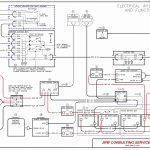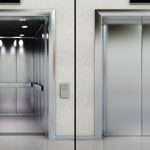Overview:
The Low Current Systems Course provides comprehensive knowledge and practical skills in
designing, installing, and maintaining low current systems such as fire alarms, CCTV, access
control systems, public address systems, and data networks. These systems are essential in
modern buildings for safety, security, and communication. The course covers both theoretical
principles and hands-on training, allowing participants to work with the latest technologies
and industry standards.
Course Objectives:
– Understand the fundamentals of low current systems and their applications in various
industries.
– Learn to design, install, and maintain different low current systems, including fire alarms,
CCTV, access control, and data networks.
– Gain proficiency in reading and interpreting technical drawings, schematics, and wiring
diagrams.
– Become familiar with international standards and codes for low current system design and
installation.
– Develop troubleshooting and problem-solving skills for low current systems.
Training Content:
1. Introduction to Low Current Systems:
– Definition and importance of low current systems in buildings.
– Overview of different low current systems: fire alarms, CCTV, access control, public
address systems, and data networks.
– Key components and technologies used in low current systems.
2. Fire Alarm Systems:
– Types of fire alarm systems (conventional and addressable).
– Components of fire alarm systems: detectors, control panels, and sounders.
– Design, installation, and maintenance of fire alarm systems.
– Fire alarm standards and codes (e.g., NFPA 72).
3. CCTV Systems:
– Types of CCTV cameras: analog, IP, and PTZ cameras.
– Designing and installing CCTV systems for different environments.
– Recording and monitoring systems (DVR, NVR).
– Best practices for positioning and maintaining CCTV cameras.
4. Access Control Systems:
– Components of access control systems: readers, controllers, and locks.
– Types of access control systems: card-based, biometric, and keypad entry.
– Designing and implementing access control systems for security.
– Integration of access control with other building systems.
5. Public Address Systems:
– Overview of public address and voice evacuation systems.
– Components: microphones, amplifiers, speakers, and control units.
– Design and installation of public address systems in buildings.
– System zoning and emergency announcements.
6. **Data and Communication Networks:
– Basics of structured cabling systems (CAT5e, CAT6, fiber optics).
– Network design principles for voice, data, and video.
– Installation, testing, and troubleshooting of data networks.
– Integration of low current systems with building management systems (BMS).
7. Standards and Regulations:
– Overview of international standards and regulations for low current systems (e.g., BS
5839, IEC, and NEC).
– Compliance with health and safety standards in system installation and maintenance.
– Best practices for documentation and record-keeping.
8. Hands-on Practical Training:
– Installing and configuring fire alarm panels, CCTV cameras, and access control systems.
– Testing and commissioning low current systems.
– Troubleshooting and problem-solving exercises.
9. Project Work:
– Real-life design project involving low current systems for a building.
– Presentation and evaluation of the project by industry experts.
Target Audience:
– Electrical engineers and technicians.
– Security and safety professionals.
– Building and facilities managers.
– Contractors and installation teams working with low current systems.
– Students and recent graduates in electrical engineering or related fields.
– Anyone interested in developing skills in low current system design, installation, and
maintenance.
This course is ideal for individuals seeking to enhance their knowledge and hands-on skills in
low current systems, ensuring they are prepared to meet the demands of modern building
technologies..






